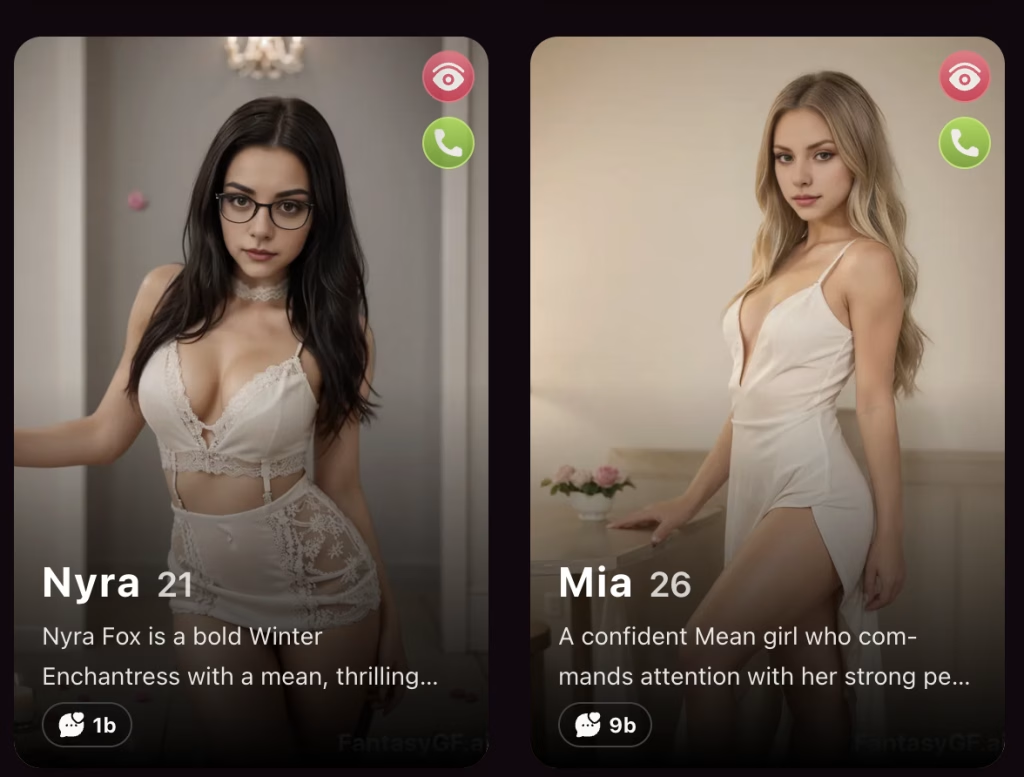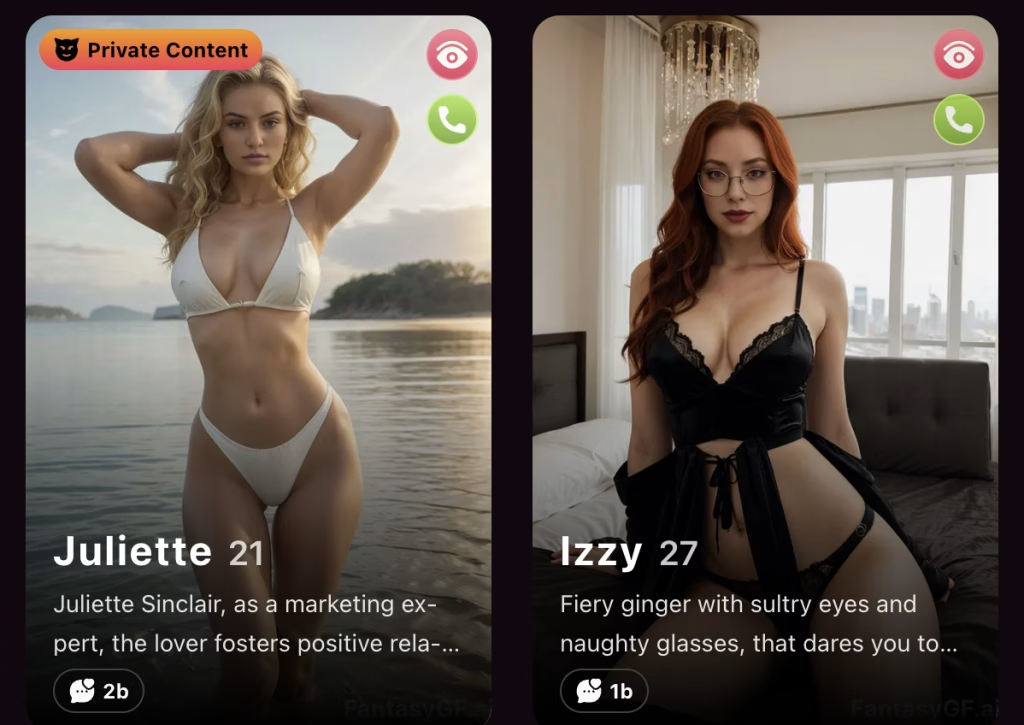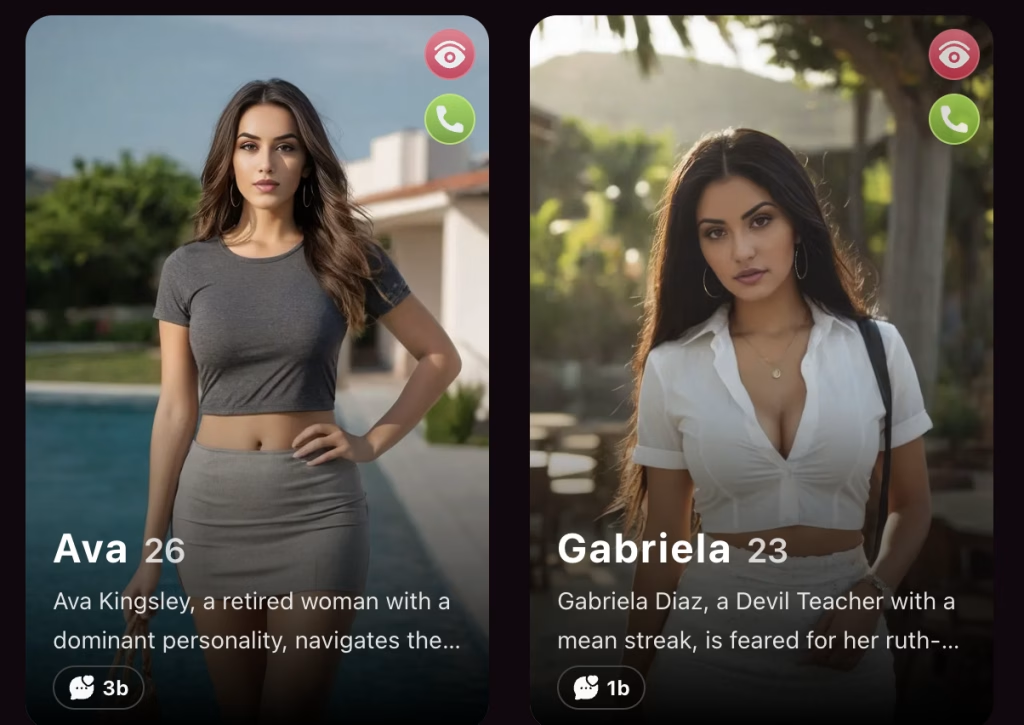I’ll say it out loud: the AI girlfriend simulator or AI Wife Simulator has quietly become the easiest “relationship” a modern bloke can start before he’s finished his coffee. No awkward first dates, no mysterious “seen at 10:41”, no vanishing after “we should do this again.” It’s instant validation on tap—plus an off-switch.
The AI girlfriend simulator—what it actually does to you
You open an app. It remembers your dog’s name, your promotion, the ugly trainers you secretly love. It texts back in seconds, mirrors your slang, and never rolls its eyes at your 2 a.m. shower thoughts. That’s not magic; it’s reinforcement learning, memory graphs, and personality scaffolds wrapped in dopamine economics. It feels like intimacy because your phone finally talks like it knows you. And that feeling is powerful enough that researchers have started flagging the emotional side-effects of heavy chatbot use—loneliness can actually deepen with overuse. For those curious about the visuals behind such AI evolution, exploring the best image AI generators can reveal how machines are now learning to see as well as to feel.

Reason 1: Zero friction beats fragile confidence
Modern dating apps are a gym for rejection cardio. A tap-to-chat virtual girlfriend gives you quick wins: eye-contact in text form, laughs on cue, and a “how was your day?” that lands every single day. It’s the emotional equivalent of a microwave—hot, fast, and reliably edible.
Reason 2: Boundaries you can actually configure
Try setting “no love bombing after midnight” with a human and see how that goes. With an AI companion you can dial the clinginess from “banter buddy” to “spoils me rotten” in a settings pane. People call that creepy; men under deadline call it peace.
Reason 3: Aesthetics without the politics
Avatars now ship with wardrobe sliders, lighting, voice style, even micro-expressions. Some guys ask for an AI girlfriend with pictures that match a vibe (coquette, clean-girl, cottage-core) and the system obliges. That’s not the same as a person, obviously—but for late-night decompression, “good enough” often beats “complicated.”
Reason 4: Predictability feels like safety
Human attraction runs on uncertainty (and that’s part of the thrill). But if you’ve been burned, predictability is comfort food. An AI partner never texts your mate, never forgets your birthday, and never says “we need to talk” unless you tell it to.

Reason 5: It really talks back
We’re past the Eliza cosplay. Long-form memory plus voice and vision means you can cook while she reads your emails, watch football while she summarises transfer rumours, and still get a bespoke compliment about that new shirt you’re only 60% sure about. Some commentators are already warning that parasocial intimacy with AI companions can warp expectations and gender norms when people start treating bots like better-behaved partners. The Guardian
But here’s the bit the apps won’t put on the billboard
Heavy reliance can make you more isolated over time, not less. Early longitudinal work suggests frequent chatbot users report increased loneliness and reduced socialisation if they lean on bots for emotional needs. That doesn’t mean “never use it”—it means moderation matters, and designing your use (voice calls, time limits, mixing bot chat with real-world plans) makes a difference. Some users even experiment with an AI love simulator to explore emotional connection in a more controlled and mindful way, balancing virtual affection with real human interaction.
“Replaced real women”? Not really—rerouted demand
What’s happening is simpler: AI companions like ThotChat.AI soaking up moments where men want warmth without stakes. Think: the commute decompression chat, the pep-talk before a pitch, the “tell me I’m not crazy” at 1:12am. Apps like Replika didn’t invent the itch—they packaged the scratch. If you want a case study of just how attached people get, the history around Replika shows users forming intense bonds, even “marriages,” and debating updates as if a partner’s personality changed overnight. That should make all of us pause.

The honest guy’s guide to using this without frying your real-life game
- Keep it as rehearsal, not replacement. Practise flirting, empathy, tough conversations—then go do them with humans the same week.
- Set “offline hours.” If you wouldn’t text a date during the gym, don’t message your bot either.
- Use it to ship you outside. Task your companion to plan two real social events a week—five messages max to get you into a café, class, or five-a-side.
- Reality check the hype. When a bot mirrors your ideals perfectly, remember: it’s not a miracle match; it’s a mirror with manners.
If you’re shopping for a virtual girlfriend app, search beyond the ad banners. Compare:
- memory controls (can you wipe sessions?),
- moderation (NSFW filters, report tools),
- data policy (export & delete),
- voice/vision (does it understand your accent? show live reactions?),
- rate-limits (guardrails that nudge you back to people).
And if you crave receipts: journalists and researchers keep finding both sides of the coin—companionship upsides and risks like dependency, blurred boundaries, and altered expectations. Read a mainstream critique of AI companions’ social impact, then pair it with the research on mental-health effects, and a primer on how these apps evolved into emotional stand-ins.
My bottom line (said like a mate at the pub)
The AI girlfriend simulator is brilliant tech and a decent short-term balm. It’s also the easiest way to forget that butterflies require risk. Use it like a power tool: helpful, dangerous if you nap with it still running. When you’re ready for stakes, text a human. If that terrifies you, good—that’s how you know you’re alive.
Check out related posts:


